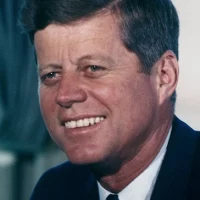Sudan’s long history has been riddled with internal conflict. The United Kingdom and Egypt controlled Sudan for the first half of the twentieth century, then agreed to cede it self-government in 1953. In December 1955, the premier of Sudan declared unilateral independence. The newly independent Republic swiftly fell into a pattern of civil wars, coups… Read More "You Know a Coup is Coming but No One will Listen: Sudan 1964"
Foreign Service Newly-Weds in 1960s Yemen
Since the dissolution of the Ottoman Empire, Yemen was been a hot spot for unrest in the Middle East. The 1960s saw instability and hostile relations between the socialist South Yemen and the authoritarian Yemen Arab Republic (YAR), also known as North Yemen. The YAR was in the midst of a bloody civil war that… Read More "Foreign Service Newly-Weds in 1960s Yemen"
The Afghan Revolution of 1978: Invitation to Invasion
Afghanistan has had a long history of living under foreign rule. Once a protectorate of the British Empire, Afghanistan became fully independent in 1919, but its vulnerable monarchy led by King Zahir Shah was unable to unite the country’s many ancestral tribes into a central government. This set up the conditions for internal political instability. The monarchy… Read More " The Afghan Revolution of 1978: Invitation to Invasion"
CNN, Tanks, and Glass Walls: The August 1991 Coup
In August of 1991, hard-liners opposed to Soviet President Mikhail Gorbachev initiated a coup attempt to overthrow him. The rebellion occurred in part because of financial strife as the Soviet Union transformed quickly from a statist to a market-based economy. Long lines formed for essential goods including medicine and fuel, and grocery shelves were empty.… Read More "CNN, Tanks, and Glass Walls: The August 1991 Coup"
After Fidel Castro ousted Cuban strongman Fulgencio Batista, expropriated American economic assets and developed links with the Soviet Union, President Eisenhower authorized the CIA in March 1960 to develop a plan to overthrow Castro. The agency trained and armed Cuban exiles to carry out the attack. Shortly after his inauguration, John F. Kennedy learned of the invasion plan, concluded… Read More "New President, Bad Plan: the Bay of Pigs Fiasco"
On April 6, 1994, the presidents of Rwanda and Burundi were assassinated when their plane was shot down near Kigali airport and crashed into the grounds of the Rwandan presidential residence. The incident ignited genocide by the majority Hutus against Tutsis and against those supporting peace negotiations to bring Rwanda out of civil war. An… Read More "Fleeing Rwanda to Survive, then Returning to Rebuild, 1994"
Mission Unspeakable: When North Koreans Tried to Kill the President of South Korea
On October 9, 1983, while South Korean President Chun Doo-Hwan was on a visit to Rangoon, Burma to lay a wreath at the Martyr’s Mausoleum of Swedagon Pagoda, a bomb concealed in the roof exploded, killing 21 people including four senior South Korean officials. President Chun was spared because his car had been delayed in… Read More "Mission Unspeakable: When North Koreans Tried to Kill the President of South Korea"
The 1991 Coup Against Mikhail Gorbachev
In August 1991, hard-line members of the Communist Party of the Soviet Union (CPSU) who opposed President Mikhail Gorbachev’s reforms and decentralization of government powers tried to overthrow him. The short-lived coup attempt is considered pivotal in the rise of Boris Yeltsin and the eventual breakup of the USSR. The attempt took place at a… Read More "The 1991 Coup Against Mikhail Gorbachev"
Drogas y Derechos Humanos: Changing U.S. Policy towards Guatemala
In June 1954 the U.S. Central Intelligence Agency, concerned about the threat of communism in Guatemala, assisted in the overthrow of the government led by President Jacobo Arbenz Guzmán. A five-member junta assumed power. Following communications with Guatemala’s Foreign Ministry and consultations with countries in Central America, the U.S. determined that the new Guatemalan government… Read More "Drogas y Derechos Humanos: Changing U.S. Policy towards Guatemala"
Modern Turkey’s History of Military Coups
The July 2016 attempted coup d’état in Turkey was the latest in a series of military interventions in the nation’s history. The military has forced out four civilian governments since 1960, when Premier Adnan Menderes was deposed. In 1971 the military forced Prime Minister Suleyman Demirel to resign; in 1980, the Turkish army launched the… Read More "Modern Turkey’s History of Military Coups"


